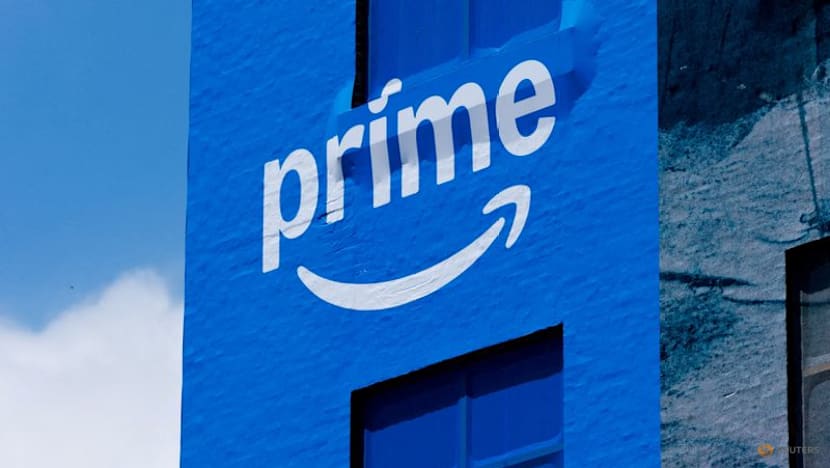Amazon trial begins on FTC claims it duped Prime subscribers

FILE PHOTO: A downtown building is wrapped in Amazon Prime advertising ahead of Comic-Con International, in San Diego, California, U.S. July 22, 2025. REUTERS/Mike Blake/File Photo/File Photo
SEATTLE, Washington :Amazon knew millions of customers were unintentionally signing up for Prime membership but did not stop them because doing so would have hurt its revenue, U.S. Federal Trade Commission attorneys argued Tuesday at the start of an anti-trust case.
The civil case against Amazon and three of its executives is a key test of the FTC's tough-on-tech stance and could force the company to pay damages worth hundreds of millions of dollars, plus fines of up to $53,000 per violation. It could also mar the image of a company that describes itself as obsessed with making customers' lives easier.
Amazon knew how to simplify the Prime membership sign-up and cancellation processes but opted not to, "because to Amazon, nothing about Prime matters more than the number of members, whether those members want to be members or not," FTC attorney Jonathan Cohen told jurors during opening statements.
"More members, more money," he repeated several times while laying out the government's case in the federal courthouse a short walk from the Seattle-based company's headquarters.
Amazon attorney Moez Kaba denied wrongdoing by the company or its executives, saying Prime's terms were clearly disclosed and canceling was easy.
Kaba accused the FTC of cherry-picking or over-playing evidence to portray the defendants as callously duping customers into signing up for the auto-renewing membership.
The case is part of a bipartisan crackdown on what the FTC says are deceptive cancellation practices.
The FTC started probing Amazon's subscription practices during President Donald Trump's first term and the case was filed during Joe Biden's presidency.
In April, the FTC sued Uber alleging it deceptively marketed its Uber One subscription, and sued the operators of gym chain LA Fitness in August for burdensome membership cancellation requirements. Those probes began during the Biden administration.
Prime subscribers pay up to $14.99 per month for free expedited shipping, access to Amazon's streaming video service and other benefits.
While that is not much money for many people, for some that amount "could mean grocery money for a family, gas to fill up a car, or just the last bit of money to make rent," an Amazon employee wrote in a 2020 email to Jamil Ghani, one of the three executives charged in the case.
Amazon recruits new subscribers by offering free trials on its website using pitches such as: "Get FREE Same-Day Delivery." But the FTC said Amazon has failed to clearly and conspicuously disclose to customers that selecting that option will enroll them in Prime and eventually result in monthly subscription charges.
While Amazon tested changes to clarify those terms between 2017 and 2022, executives several times rejected them to prevent sign-ups from declining, the FTC said. The company did not adopt such changes until 2022, while it was under investigation by the FTC, the agency said. The agency sued Amazon the next year.
The FTC said Amazon's failure to disclose Prime's terms, along with multi-screen cancellation processes designed to keep customers from quitting Prime, violated the Restore Online Shoppers' Confidence Act (ROSCA).
ILIAD FLOW
Amazon signed up 40 million shoppers for Prime without their consent, an expert witness for the FTC has estimated. The company's own data shows that tens of millions of users abandoned the cancellation process midway through, an FTC official said.
That process, internally dubbed the "Iliad flow" at Amazon, required clicking as many as seven times to actually end a membership, even though Amazon's directions incorrectly implied the process was completed after a couple of steps, the FTC argued.
The Iliad flow "was difficult to get into and difficult to complete," said Reid Nelson, a former Amazon user-experience researcher, during his testimony.
The company has accused the FTC of trying to stretch the law and misinterpreting its internal efforts to understand and improve customers' experience. Additionally, ROSCA "does not require that a cancellation mechanism be well-promoted or popular," the company said.
Kaba portrayed ROSCA's requirements as unclear even now and said complying "shouldn't feel like Goldilocks" trying to figure out the right formula.
The trial is expected to last about a month and feature testimony from customers as well as current and former Amazon employees.
The FTC came into the trial at an advantage, after winning a ruling that Amazon violated ROSCA when it collected customers' billing information in the form of saved payment methods before disclosing Prime's terms and conditions. The judge also ruled that the three executives are liable for any violations the jury finds.













